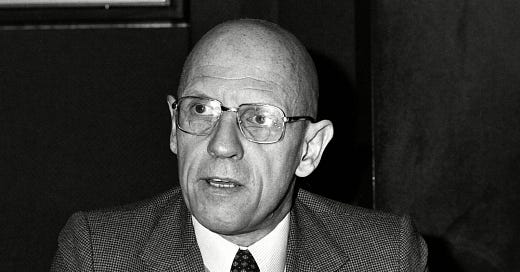In my previous post, Alan Sokal’s Famous Academic Hoax, I discussed the harsh criticism postmodernism has received, particularly its use in academic humanities. This post briefly explains what postmodernism is and the main arguments against it.
What Is Postmodernism?
Postmodernism is an intellectual movement that emerged in the mid-20th century as a reaction against Enlightenment ideals of reason, objective truth, and progress. It is characterized by extreme skepticism toward grand narratives, a belief in the relativity of truth, and the idea that knowledge is socially constructed rather than objectively discovered.
French philosophers such as Jean-François Lyotard, Michel Foucault, Jacques Derrida, and Jean Baudrillard challenged traditional concepts of meaning, power, and reality. Lyotard famously dismissed overarching explanations—whether scientific, Marxist, or religious—as tools of power. Derrida’s deconstruction theory argues that meaning is inherently unstable and ever-shifting, while Foucault contended that knowledge is shaped by power structures rather than pure rational inquiry. Baudrillard went further, asserting that media and consumer culture create a “hyperreality” in which truth becomes indistinguishable from illusion.
While postmodernism has significantly influenced literature, philosophy, politics, social justice activism, and universities, it has drawn considerable criticism for its intellectual opacity, political ambiguity, and its attacks on science, reason, individualism, and the Western Enlightenment. Critics include academic heavyweights Sokal, Noam Chomsky, Richard Dawkins, John Searle, Robert George, and Steven Pinker.
Key Criticisms of Postmodernism
Rejection of Objective Truth and Relativism
A central critique of postmodernism is its denial of objective reality. Critics argue that this leads to relativism, where no claim to truth is more valid than another. This perspective allows scientific facts to be dismissed as mere social constructs. Scholars such as physicist-mathematician Sokal, biologist Richard Dawkins, and cognitive scientist Daniel Dennett have said that postmodernism undermines scientific and rational inquiry by equating empirical knowledge with subjective interpretation.
Obscurantism and Lack of Clarity
Postmodernist writing is frequently criticized for being needlessly obscure, overly complex, and laden with eccentric jargon. The “Sokal Hoax” of 1996 and the 2017-8 "Grievance Studies Affair” covered in the previous post exposed this issue. These incidents highlighted confirmation biases and a lack of intellectual rigor in some areas of postmodernist academia.
Political Ambiguity and Nihilism
Although postmodernism critiques power structures, it offers no clear political alternatives, often leading to political inaction or complicity with the status quo. Philosopher Slavoj Žižek criticizes postmodernism for lacking a coherent political vision.
Additionally, postmodernism views people as mere products of power structures rather than autonomous agents, reducing interactions to power dynamics. This perspective is often accused of promoting cynicism and disengagement, along with dehumanizingly treating people as mere avatars rather than individuals.
Undermining Universal Values and Human Rights
By rejecting universal principles, postmodernism is seen as weakening the foundation of human rights and moral progress. Christopher Hitchens argued that its skepticism toward Enlightenment values such as individual liberty and judicial fairness underminds efforts to defend democracy and universal human rights.
Misuse of Science and Mathematics
Postmodernist thinkers have also been accused of misapplying scientific and mathematical concepts in misleading or incorrect ways. In their book Fashionable Nonsense, Sokal and physicist Jean Bricmont criticize postmodernist academics for using scientific terminology without an understanding of science.
Overemphasis on Language and Discourse
Postmodernist theories, particularly those of Derrida and Foucault, emphasize the idea that language and discourse shape reality. Critics argue that this perspective neglects material conditions and historical realities. Marxist scholars like Terry Eagleton and Fredric Jameson contend that postmodernism distracts from economic and social struggles by focusing excessively on language and representation.
A Critique by Noam Chomsky
The below short video is a harsh criticism of postmodernism by famed M.I.T. linguist, analytics philosopher, and cognitive scientist Noam Chomsky





If I had to pick out one feature of postmodernism that best defines it, I'd say the idea that objectivity doesn't exist, not even as an ideal to be approached. DiAngelo and Kendi both repeat this idea, as do local social justice leaders I know. Is that the best defining feature to point to? Is there a better defining feature? Is there any better source for this idea than postmodernism? Maybe critical theory?
Helen Pluckrose says that activists decided in the '90s that, while postmodernism applies to society in general, it should not apply to race. On issues of race, boundaries are to be policed instead of blurred. Rachel Dolezal, for example, is not black. See Pluckrose's book Cynical Theories.